Advocacy Committee
The FENS Advocacy Committee is dedicated to increasing visibility and support for the European neuroscience community at the national, European and global policymaking levels.
The committee is responsible for the following tasks:
- To develop and implement the advocacy strategy of FENS.
- To monitor and inform FENS of any critical matters related to neuroscience advocacy in Europe and recommend suitable actions.
- To submit to the Executive Committee an annual activity plan and budget request each year.
- To assess and further develop Advocacy Committee activities and report regularly to the Executive Committee and Governing Council on progress at their meetings.
Chairperson
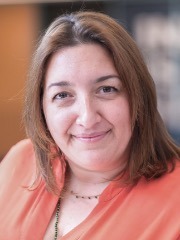
Simona Lodato, Italy
Member
2024-2026
Simona Lodato earned her Ph.D. in 2011 from SEMM and the University “Federico II,” researching inhibitory interneuron development at TIGEM. At Harvard, she studied molecular mechanisms shaping projection neuron identities, focusing on corticospinal motor neurons linked to ALS. She discovered projection neuron identity affects interneuron migration and cortical network assembly. Since 2016, she advises the Allen Institute for Brain Science as a Next Generation Leader. She is now Associate Professor and Neurodevelopmental Biology Lab Head at Humanitas Research Center.
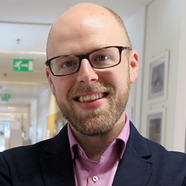
Thomas McWilliams, Finland
Member
2024-2026
Thomas McWilliams has a background in biochemistry, neurobiology, and degeneration signalling. Graduating top of his class with a BSc (Hons) in Biochemistry from the National University of Ireland, Galway, he pursued a Wellcome Trust-funded PhD in Neuroscience at Cardiff University. Under Professors Alun Davies and Stephen Dunnett, he uncovered new axon growth mechanisms in sensory, sympathetic, and dopaminergic neurons.
For his postdoctoral research at the MRC Unit, University of Dundee, Tom worked on mitophagy and Parkinson’s disease with Ian Ganley and Miratul Muqit, highlighting both PINK1-independent mitophagy and the role of PINK1-Parkin activation. Since 2018, he has led his lab at the University of Helsinki as a Tenure Track Assistant Professor, securing competitive funding and collaborating with industry. He was recently elected a Faculty member of F1000 Prime.
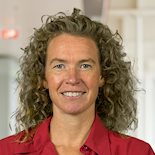
Judith Regina Homberg, Netherlands
Member
2024-2026
Professor Judith Regina Homberg investigates the factors that influence brain development and behavioural traits, focusing on how these interactions can lead to emotional responses. She hypothesises that targeted interventions can offset maladaptive emotional reactions, such as those seen in stress-related disorders and addiction, by enhancing cognitive function.
Her research centres on the interplay between genetic (particularly serotonergic) and environmental factors, using translational animal models. She studies unique mutant rats that model human genetic polymorphisms, including the serotonin transporter knockout rat, to explore how serotonin and environmental conditions affect brain development, behaviour, and cognition over the long term.
Professor Homberg’s team specialises in measuring both basic and complex behaviours in rats, applying a range of methods such as invasive techniques, pharmacological manipulations, in vivo neurochemical measurements, neuroimaging, molecular genetic analyses, and immunohistochemical assessments. This comprehensive approach allows her to investigate the broader impact of these factors on behaviour, aiming to translate findings into potential therapeutic strategies for improving cognitive function and addressing emotional dysfunction.
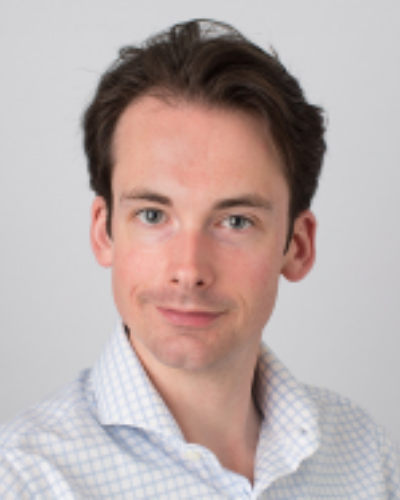
Tomás Ryan, Ireland
Chair
2024-2026
Tomás Ryan originally graduated from Trinity College Dublin in 2005 with a BA in genetics. He completed his Ph.D. in molecular neuroscience with Seth Grant at the University of Cambridge and the Wellcome Trust Sanger Institute in 2009. His thesis work was supported by a Wellcome Trust PhD Fellowship. Following a year as Junior Research Fellow at Wolfson College, University Cambridge, he relocated to the USA to work as a Postdoctoral Researcher in the group of Susumu Tonegawa (Nobel Laureate, 1987) at Massachusetts Institute of Technology (MIT) (2010-2016). At MIT he was centrally involved in the development of novel genetic methods that allow for the labelling and manipulation of specific memory engrams in the rodent brain. This work was supported by Howard Hughes Medical Institute (HHMI) and RIKEN Brain Sciences Institute, Japan. He started his research group in 2016 at Trinity College Dublin, where he is Assistant Professor of Neuroscience. Tomás also holds a joint faculty position at the Florey Institute of Neuroscience and Mental Health at the University of Melbourne, Australia. His research is supported by a European Research Council (ERC) Starting Grant, a Science Foundation Ireland (SFI) President of Ireland Young Researcher Award (PIYRA), and a Jacobs Foundation Fellowship. Outside of science, Tomás’ interests include travel, reading, philosophy, and politics.
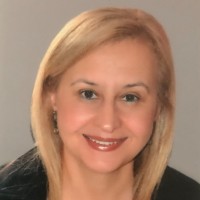
Gulgun Sengul, Turkey
Member
2024 - 2026
Dr Gulgun Sengul’s primary research focuses on spinal cord injury, as well as the anatomy of the spinal cord and brainstem. Since 2008, she has collaborated with Professors George Paxinos and Charles Watson, a partnership that has resulted in the publication of three books and 30 book chapters. Notably, The Spinal Cord: A Christopher and Dana Reeve Foundation Text and Atlas (2009), Atlas of the Spinal Cord (2013), and The Mammalian Spinal Cord (2022), all published by Academic Press Elsevier.
Dr Sengul has also contributed to the gene atlas projects at the Allen Institute for Brain Science in Seattle, including the Mouse Spinal Cord Atlas, the Developing Human Brain Atlas, and the Human Brain Atlas. Her expertise extends to mapping spinal cord atlases for multiple species, including rats, mice, marmosets, rhesus monkeys, and humans. These groundbreaking atlases were published in Atlas of the Spinal Cord of the Rat, Mouse, Marmoset, Rhesus, and Human (2013).
In 2023, Dr Sengul published with Elsevier the book Human Neuroanatomy, designed for medical students. Her work continues to be a valuable contribution to the field of neuroanatomy.

Roman Stilling, Germany
Member, CARE committee representative
2024-2026
Roman Stilling studied life sciences at the University of Münster and neurosciences at the International Max-Planck Research School in Göttingen, Germany. He received his PhD in 2013, working on epigenetic mechanisms of learning and memory and brain ageing at the European Neuroscience Institute in Göttingen. From 2013 to 2016, he worked on microbiome-brain interaction as a PostDoc at the APC Microbiome Institute in Cork, Ireland. Since September 2016, Dr Roman Stilling has worked for the information initiative „Tierversuche verstehen“, which is coordinated by the Alliance of Science Organisations in Germany.

Teresa Summavielle, Portugal
Member
2024-2026
Teresa Summavielle is the Head of the Addiction Biology Lab at i3S – Instituto de Investigação e Inovação em Saúde (University of Porto), where she has been a Principal Investigator since 2013. She is also an Invited Professor at the Allied Health School of Porto (ESS.PP) and coordinates courses in Neurobiology of Addiction and Neurotoxicology in Doctoral programs of both Medical Schools of Porto (FMUP and ICBAS). Teresa received her PhD in Biomedical Sciences in 2003 (University of Porto, ICBAS).
Presently, she studies the mechanisms involved in the crosstalk of different brain cells under the action of psychoactive drugs and how this contributes to addiction and relapse. Since 2008 she has coordinated a campaign to reduce drug use. She is also committed to contributing to better science by improving the quality of research models’ quality.
She is a board member of the Portuguese Neuroscience Society (SPN), a board member of the Portuguese Union for Higher Education (SNESup) and an acting councilwoman at the Municipality of Porto.
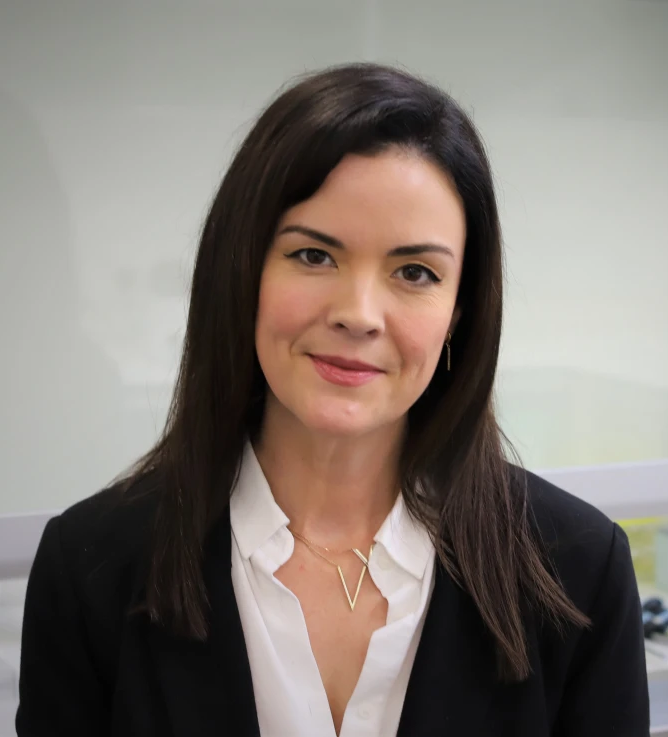
Sonja Vernes, UK
Member
2024-2026
Professor Sonja Vernes leads the Neurogenetics of Vocal Communication Research Group, which investigates the genetics of vocal communication in mammals to better understand the evolution and biological foundations of human speech and language.
Her research focuses on uncovering the neuro-genetic mechanisms that underlie speech and language by examining traits like vocal learning. She employs a range of interdisciplinary approaches, including clinical genetic analyses to identify the genetic causes of speech and language disorders in human cohorts, and “omics” techniques to discover new genes involved in vocal learning through transcriptomics, network building, and de novo genome sequencing. This work is carried out in collaboration with the Bat1K genome sequencing consortium.
Professor Vernes also conducts molecular-genetic studies to understand the functions of language-related genes identified in clinical studies and applies neurogenetic methods to map vocal learning circuits in mammalian brains, linking genes with neurobiology and behaviour. She uses behavioural paradigms to assess vocal learning abilities in bats, establishing them as the first tractable mammalian model for vocal learning.
Her pioneering work aims to answer key questions about the evolution and biological encoding of vocal learning, with important implications for understanding human speech, language, and related disorders.
